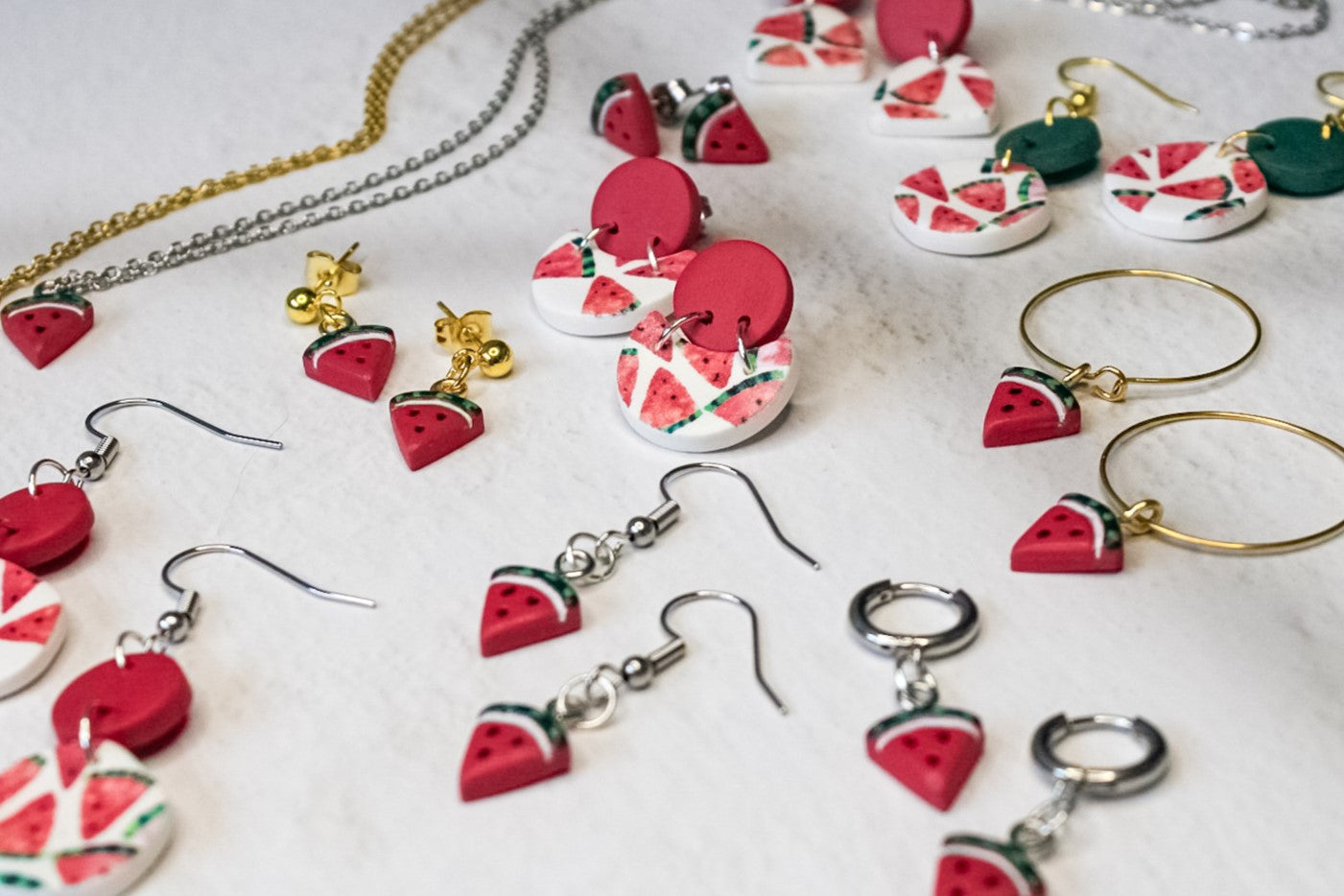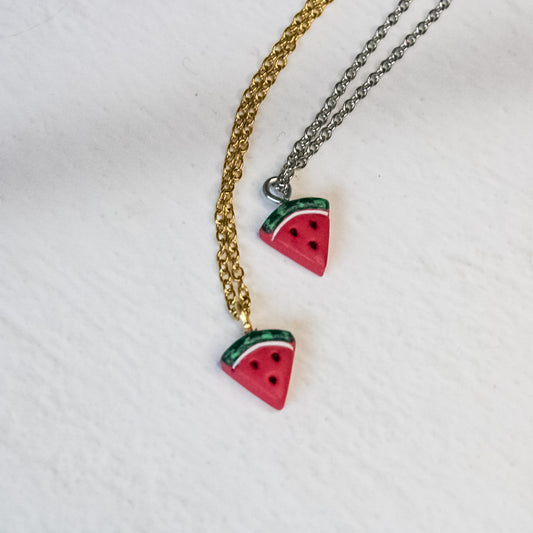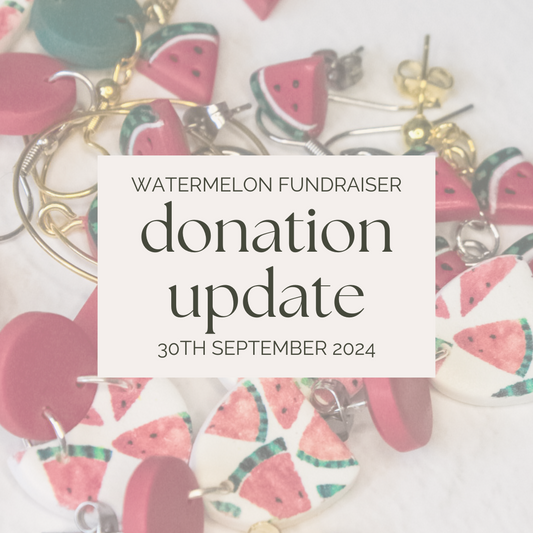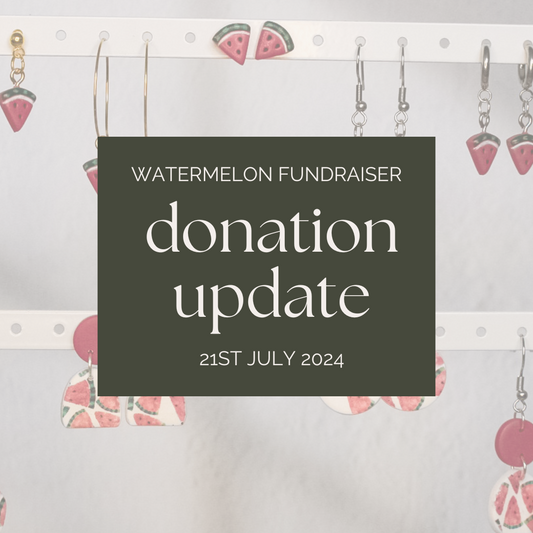-
Watermelon Stud Earrings
Regular price £12.00 GBPRegular priceUnit price per -
Watermelon Huggies Earrings
Regular price £12.00 GBPRegular priceUnit price per -
Watermelon Hook Earrings
Regular price £12.00 GBPRegular priceUnit price per -
Watermelon Necklace
Regular price £12.00 GBPRegular priceUnit price per -
Watermelon Hoop Earrings
Regular price £12.00 GBPRegular priceUnit price per -
Watermelon Ball Stud Earrings
Regular price £12.00 GBPRegular priceUnit price per
Frequently Asked Questions About
Operation Olive Branch
What is Operation Olive Branch (OOB)?
Operation Olive Branch is a volunteer-powered grassroots collective effort to connect with and amplify Palestinian voices in an effort to support their critical needs, which include but are not limited to their mutual aid requests. This global solidarity initiative is steered by a diverse core council of advocates from occupied Turtle Island which include Palestinian activists, the Jewish grandchild of a holocaust survivor, and everyone else in between.
How does OOB support Gazan families?
OOB has collected the mutual aid campaign information of over 800 families on a detailed spreadsheet with hopes of enhancing the families’ accessibility and reach to potential donors and advocates. These pre-existing campaigns are created and managed by the families themselves, and our role at OOB is simply to amplify them. We include campaigns from families regardless of their request, whether it be funds for medical aid, food, supplies of living, evacuation fees, or to rebuild their homes.
The other leg of our operation occurs on social media, where we have amassed a growing community of dedicated advocates willing to share their privilege and reach by making videos and hosting livestreams to raise funds for families. OOB then provides physical, digital, and human resources to their efforts as part of the larger online advocacy community.
Why is direct aid so important when there are lots of aid organizations fundraising to support Gaza?
While there are many large aid organizations fundraising for Gaza, the feasibility of that aid being available, or accessible, to Gazans is of great concern to the general public. We encourage people to donate to local aid organizations (or those with contacts on the ground) whose services and support are still functioning despite the increasing current barriers for larger non local organizations. Organizations we recommend include but are not remotely limited to: Palestine Red Crescent Society (the heroic first responders), Connecting Gaza (connecting thousands of Gazans to eSims every day), GXZA Health (providing telehealth and aid on the ground), Gaza Kinder Relief (evacuating critically injured children), the Gaza Sunbirds (local para-athletes who deliver aid), Sulala Animal Rescue, or individuals like Doctor Rajaa Hasen Okasha who is also displaced in a tent in Rafah with his family yet still manages to operate a free pediatric medical tent in his camp.
Beyond supporting these incredible efforts, many people are looking for additional ways to support Palestinian families directly. Whether that support comes in the form of assisting these families in creating or building a social media presence so that they can speak for and advocate for themselves, or in the form of donations, each effort contributes to our goal of uplifting and amplifying Palestinian voices and their mutual aid requests. Through the OOB community, we’ve found that MANY people who had been asking “what more can I do to help” have found that answer through personally connecting with these families and supporting them directly. Many who choose to participate in the social media community that has formed around this project have built genuine relationships with these families and are fundamentally transformed forever.
Who is running OOB?
OOB is a community-owned collective, and as such, every participant is OOB - both online and in the physical space, public-facing and behind the scenes.
Beyond its diverse core council (described above), OOB is made up of over 50 “accomplices” who are directly committed to OOB’s purpose, volunteering their talents to the collective as part of project teams.
Why “accomplice”? In social justice scholarship, an accomplice is an activist who moves beyond surface allyship. An ally listens, an accomplice acts. An ally will shy away when things get tough, an accomplice will stay. An ally plays it safe, according to their personal comfort level. An accomplice understands that true advocacy and personal comfort are incompatible, and are willing to take on some degree of risk or sacrifice for others. Accomplices promote the voices of the marginalized rather than their own, and do so without expectation of recognition, praise, or return favor.










